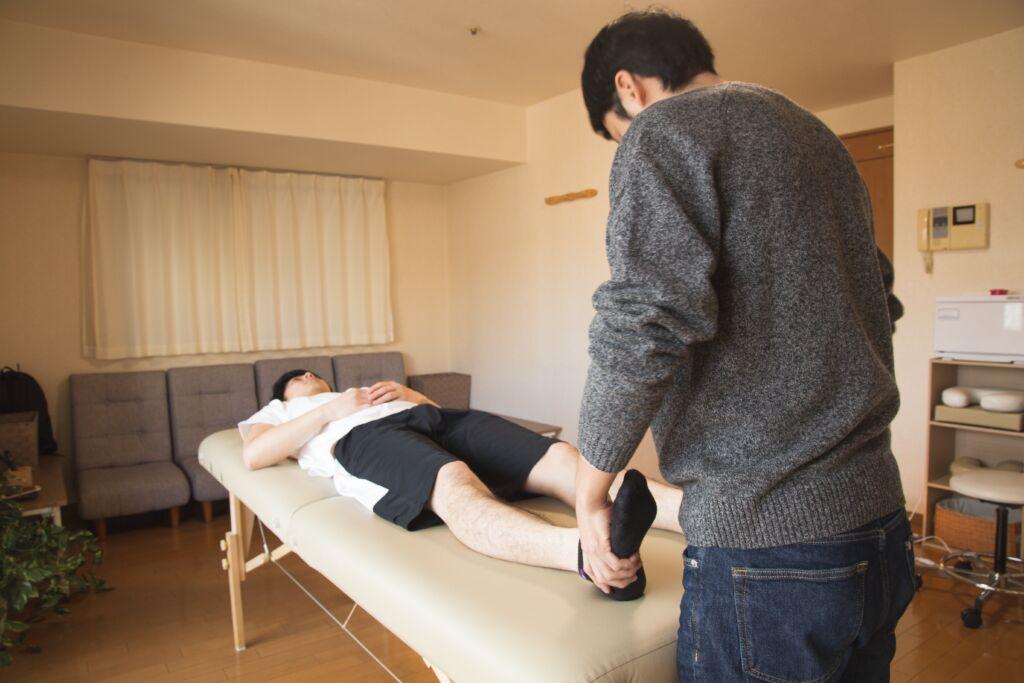
Shockwave therapy is a type of treatment that uses high-energy sound waves to break up tissue in the body. This therapy is often used to treat problems with the muscles, tendons, and ligaments. Shockwave therapy effectively treats several conditions, including plantar fasciitis, Achilles tendonitis, and shoulder tendinitis. Shockwave therapy is usually done as a series of treatments, lasting for about 5-10 minutes, and the treatment is typically done in a series of sessions. It is generally safe and well-tolerated, with few side effects.
An Introduction to Shockwave Therapy
Shockwave treatment is a physiotherapy method that is growing increasingly popular. Shockwave medication is treated for a combination of numerous musculoskeletal symptoms, mainly ones comprising connective tissues, and uses significantly less strength than therapeutic diagnostics.
Shockwave treatment provides physicians with another treatment option for recalcitrant, persistent tendonitis. Specific tendon issues may not appear to react to standard therapeutic approaches; shockwave therapy is a boon in such cases.
At your initial appointment, the physiotherapist will examine patients to ensure that you’re an excellent option for shockwave treatment. The best of physiotherapists will enlighten patients regarding their problem, including what they can undertake in addition to therapy—order to counteract specialized workouts, examining any other possible causes including postural, involuntary contractions of specific other motor units, among others. Shockwave therapy is typically administered weekly for around two months, depending on the outcomes. The treatment can be uncomfortable, although it only lasts 5-10 minutes, and the strength could be modified to keep the patient remaining comfortable.
These sound waves promote healing by stimulating new blood vessels’ growth and helping break down scar tissue. The therapy is usually given as a series of treatments, and most people see a significant improvement in their symptoms after just a few sessions.
Conditions Treatable Through Shockwave Therapy
There are several conditions that can be treated effectively through shockwave therapy. This can help treat diseases such as kidney stones, gallstones, and other types of blockages by using sound waves to generate a shock that helps to break up any areas of blockage or congestion in the body. Shockwave therapy can also be used to treat conditions such as tendonitis and plantar fasciitis. This type of therapy can also be used to help improve circulation and reduce inflammation.
Preparation Tips for Shockwave Therapy
You will need to prepare for your shockwave therapy sessions. This includes wearing loose, comfortable clothing and avoiding lotions or oils on the day of your treatment. You should also eat a light meal before your session, and drink plenty of water to stay hydrated. It would be best if you also stopped taking anti-inflammatory drugs at least two days prior to the treatment.
Who Should Avoid Shockwave Therapy?
There are certain groups of people who should not go for shockwave therapy. These include pregnant women, those who are breastfeeding, pacemakers, patients with metal implants, and people with certain medical conditions. If you fall into any of these categories, please consult with your doctor before considering shockwave therapy.
Benefits of Shockwave Therapy
Here are some ways how shockwave therapy can prove to be a boon in medical practice.
Fast Treatment
One of the main advantages of shockwave therapy is that it is a fast treatment option. In many cases, patients can see significant improvements in their symptoms after just a few sessions of treatment. Additionally, shockwave therapy is a non-invasive and relatively painless treatment option, which makes it an attractive option for many patients.
Limited Side Effects
Shockwave therapy works by delivering high-energy sound waves to the affected area. These sound waves cause a series of micro-traumas, which stimulate the body’s natural healing process. The end result is reduced pain and improved function. One of the significant benefits of shockwave therapy is that it is suitable for a wide range of patients. It can be used to treat both acute and chronic conditions and can be effective for both short-term and long-term relief.
Fast Recovery
The energy produced in the therapy helps to break down the scar tissue that has formed and also encourages the growth of new, healthy tissue essential for an individual’s well-being. This results in a faster recovery time for the patient.
Shockwave therapy is a safe and effective treatment option for many conditions. As the surgery is not required, it is also a relatively short treatment, with most sessions lasting only some minutes. Recovery times are typically quick as well, with most patients seeing significant improvements within a few weeks.
No Anesthesia Requirement
Shockwave therapy is a relatively new and innovative treatment option for a variety of conditions and injuries. Unlike many other treatments, shockwave therapy does not require anesthesia, saving you from anesthesia’s pitfalls in the long run. This is because the shockwaves used in the therapy are of low intensity and do not cause pain or discomfort. The therapy works by stimulating the healing process, helping to reduce pain and improve function.
After-effects of Shockwave Therapy
Shockwave therapy is a new and promising treatment for a variety of conditions, including chronic pain or discomfort at the site of treatment. While the therapy is still being studied and refined, there is evidence that it can be an effective treatment for many people. While shockwave therapy is generally safe, there are a few potential side effects to be aware of. These include temporary pain at the site of treatment, bruising, and swelling for a day or two. In rare cases, shockwave therapy has been linked to excessive pain. If you are considering shockwave therapy for your chronic pain, be sure to discuss the risks and benefits with your doctor.
Shockwave therapy is thus a promising new treatment option that has the potential to help a variety of conditions which you can get through with the services of Synergy Rehab Surrey Nordel Physiotherapy. By following these preparation tips, you can help ensure that you have a successful treatment experience. Contact us now for more information.








